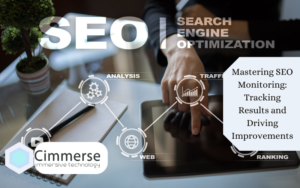AI in Healthcare
The healthcare sector is a major contributor to economic growth. Unfortunately, it also suffers from inefficiencies and inadequate data warehousing.
AI has the potential to have a profound effect on healthcare. A recent Accenture report estimates that when combined, key clinical health AI applications could generate $150 billion in annual savings for US healthcare systems by 2026.
How Much Is AI Worth To The Healthcare Sector?
AI is a revolutionary tool that can revolutionize healthcare services. Not only does it reduce costs, boost productivity and enhance care delivery, but its capabilities also extend further than that.
AI tools can automate hospital bed assignment, documentation and fraud detection. They reduce ER bed wait times and ensure adherence to clinical guidelines – all of which save money for healthcare organizations.
Smartphone and wearable sensors collect invaluable data about patients’ health. By using AI technology, these data can be analyzed and extracted for remote monitoring purposes.
Another application of AI in drug discovery is automating target identification and helping with drug repurposing.
Furthermore, AI can save pharmaceutical companies both time and money when conducting clinical trials. It also optimizes drug-target interactions while aiding in the identification of off-target molecules.
GE Healthcare (NYSE:GE)
General Electric’s Healthcare division has been a dominant player in the sector for decades. They offer an array of products used by hospitals around the globe that meet hospital needs.
The company’s primary areas of expertise are medical imaging and information technologies, medical diagnostics, patient monitoring systems, drug discovery, biopharmaceutical manufacturing technology, computerized data management and performance improvement. With operations across 100 countries worldwide, it has a significant presence in both North America and Europe.
Jim Culp, CEO of GE Corporation for 2019, set two major objectives for 2019: to improve their financial position and expand their businesses. One way they accomplished this was by selling off GE Healthcare Life Sciences unit which generated over $3 billion in revenue in 2018.
This move is a significant milestone on the company’s path towards reaching its objectives. GE Healthcare can continue its impressive progress within the health technology sector with this decision and also expand into new fields with this acquisition.
Medtronic (NYSE:MDT)
Medtronic (NYSE:MDT) is one of the world’s largest medical device companies. Its products range from pacemakers and defibrillators, to heart valves, stents, insulin pumps, spinal fixation devices, neurovascular products and surgical instruments.
The company boasts several growth segments, such as Cardiovascular, Medical Surgical, Diabetes and Neuroscience. It’s a dividend aristocrat with an impressive business portfolio, strong product offerings and steady free cash flow generation.
Recent results for Google were mixed, with revenues rising 1% as reported and 7% at constant currency levels. Nonetheless, its adjusted earnings per share beat consensus estimates by one penny.
Medtronic’s fiscal year concludes on April 30, and it expects procedures volume to rebound this quarter, helping it post strong earnings growth after the worst of Covid-19 disruptions have passed.
IBM (NYSE:IBM)
IBM (NYSE:IBM) is one of the world’s largest software and tech firms. It provides a range of technology products and services such as cloud computing, big data, mobile applications, business intelligence, and security to its clients around the globe.
For over 100 years, IBM has been a leader in IT. Additionally, the company provides extensive employee benefits like group life insurance and survivor benefits, special training programs for disabled employees, as well as work-life resources.
But it isn’t the only large software and tech company to attempt to break into healthcare. Indeed, Google itself shuttered its own healthcare division back in August 2021 after a long and winding road to success.
Over the past several years, IBM has made numerous significant healthcare acquisitions. These include Merge Healthcare, Phytel and Explorsys – all big data health analytics firms.
Conclusion :
The healthcare sector is a major contributor to economic growth. AI has the potential to have a profound effect on healthcare. AI is a revolutionary tool that can revolutionize healthcare services. AI tools can automate hospital bed assignment, documentation and fraud detection. Furthermore, AI can save pharmaceutical companies both time and money when conducting clinical trials. General Electric’s Healthcare division has been a dominant player in the sector for decades.
The company’s primary areas of expertise are medical imaging and information technologies, medical diagnostics, patient monitoring systems, drug discovery, biopharmaceutical manufacturing technology, computerized data management and performance improvement. Jim Culp, CEO of GE Corporation for 2019, set two major objectives for 2019: to improve their financial position and expand their businesses. This move is a significant milestone on the company’s path towards reaching its objectives. Medtronic (NYSE:MDT) is one of the world’s largest medical device companies.
Also Read : 20 High Growth DTC Startups to Watch in 2023
Also Read : As a B2B business involved in the food industry




